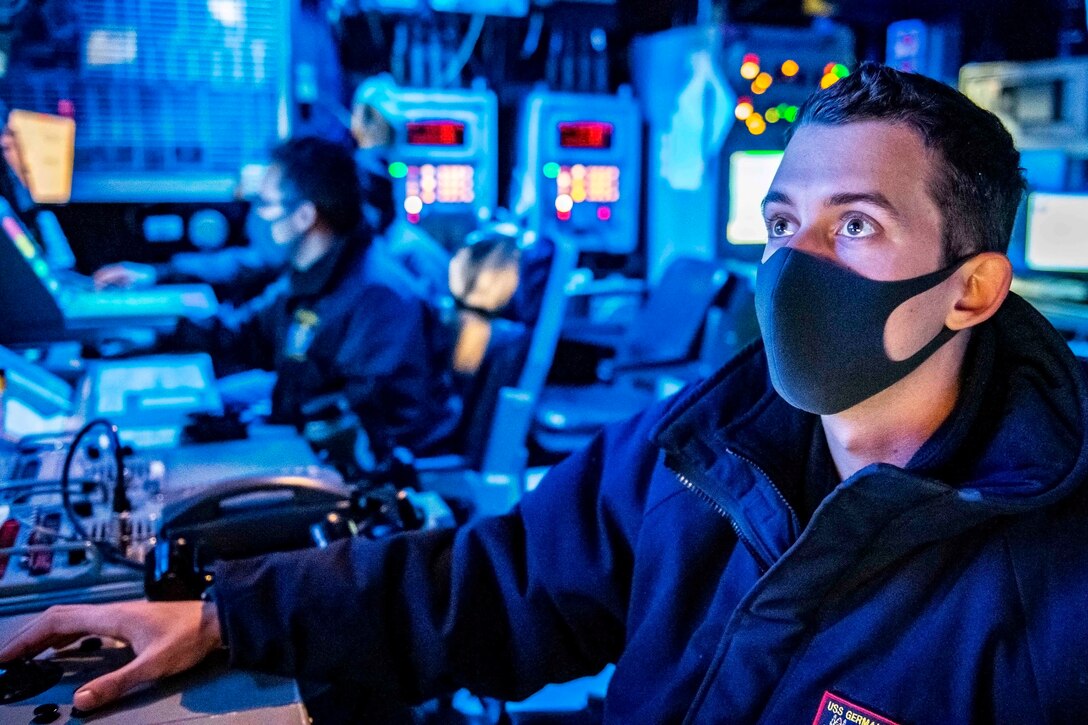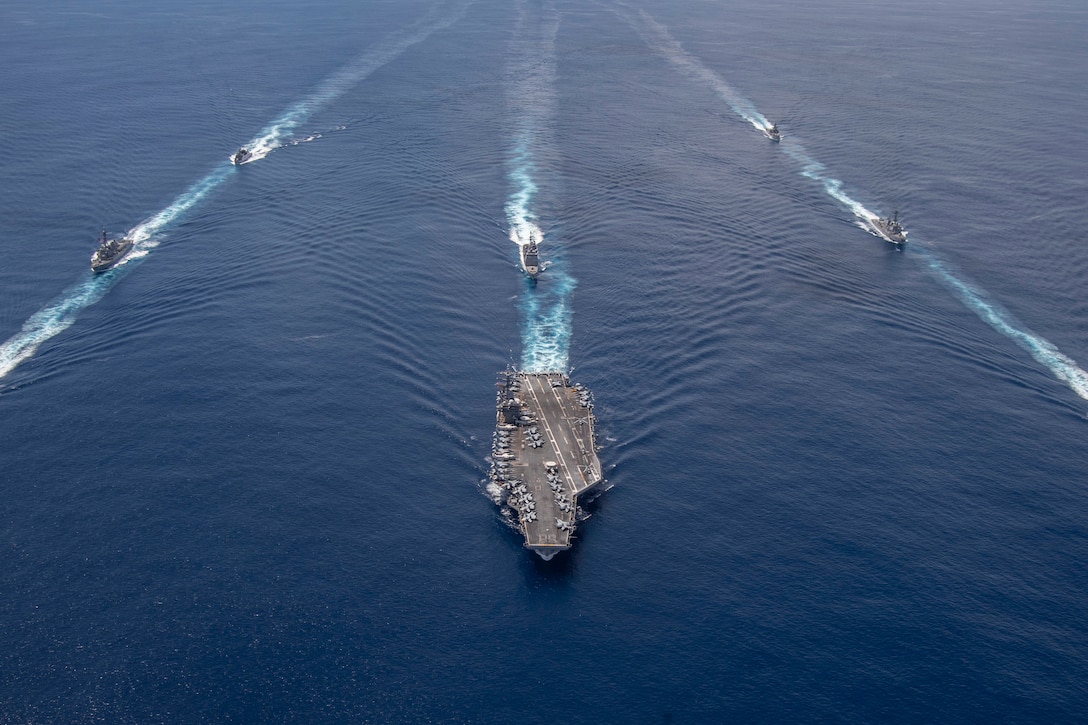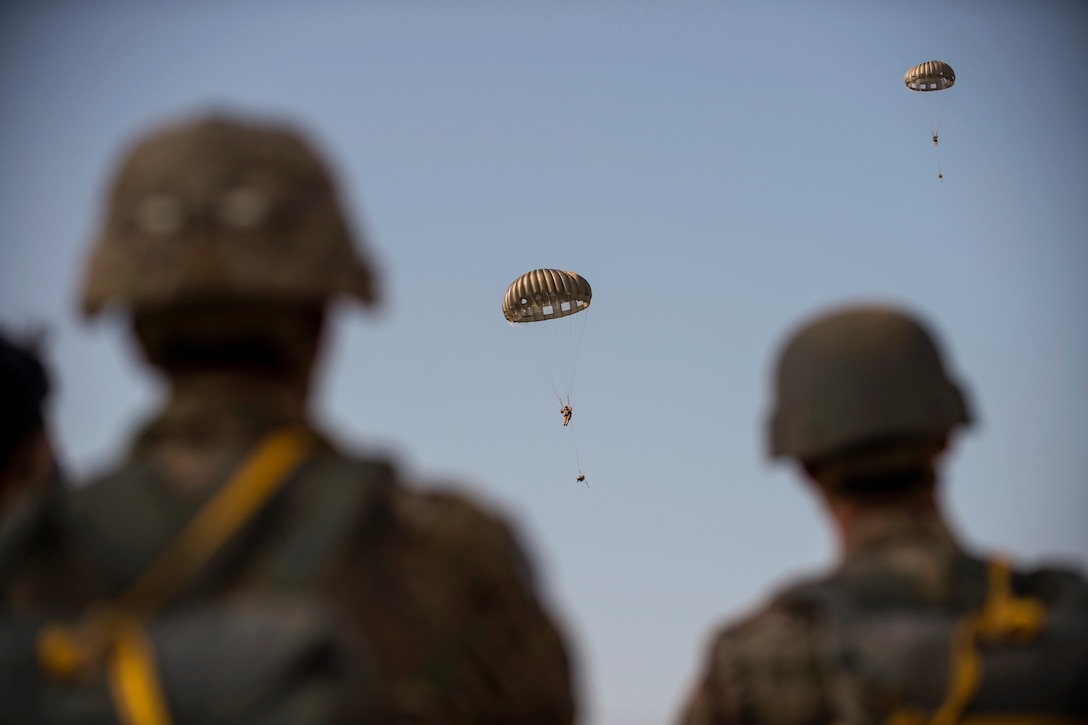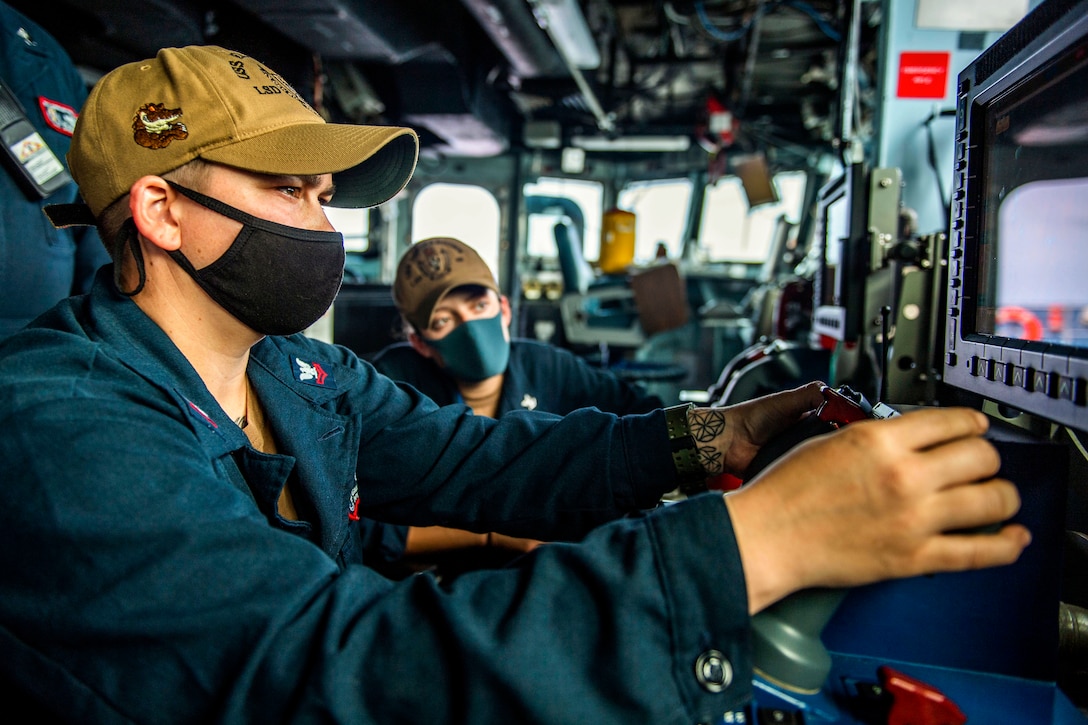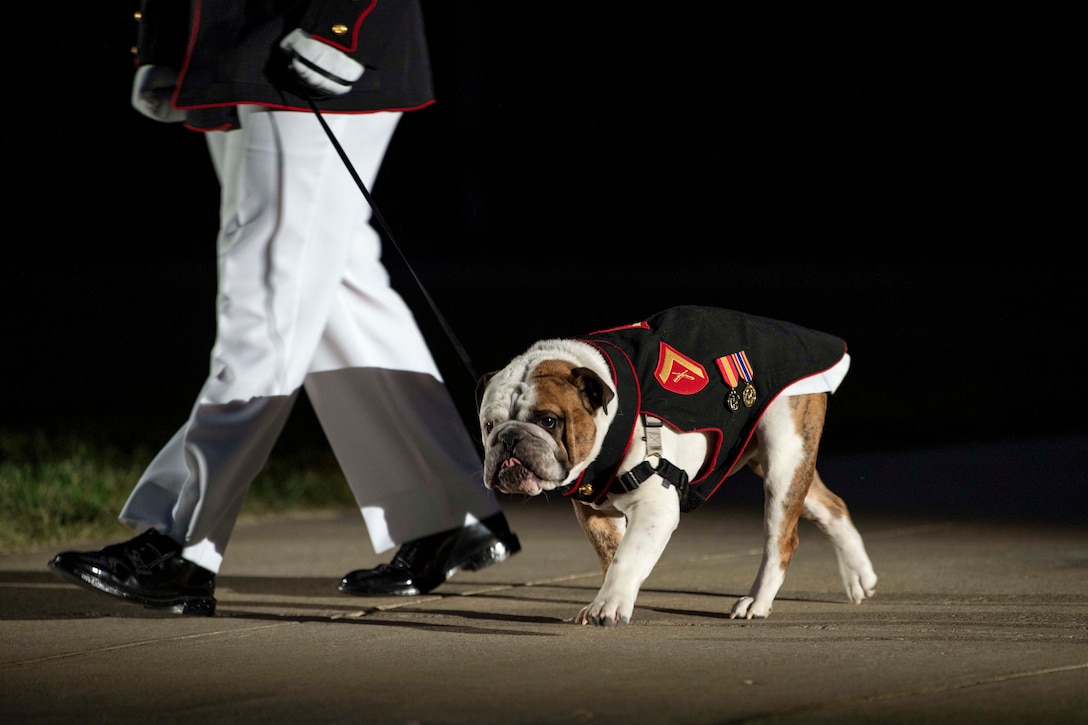Navy Lt. Louis Petro stands watch as the tactical action officer in the combat information center aboard the USS Germantown in the East China Sea, July 17, 2020.
Monday, July 20, 2020
Ministry of Defense Advisors Program Seeks Applicants
One small Defense Department program has a big global impact. The Ministry of Defense Advisors Program, or MODA, was established in 2009 during the height of the troop surge in Afghanistan. The goal was, and still is, to standardize the selection and training of the DOD's highest civilian performers and transform them into the world's best advisors, DOD officials said.
Since 2010, MODA has recruited, trained and deployed 600 senior DOD civilians, and is highly regarded by senior DOD leaders and ministerial heads around the globe, they added.
The program is now overseen by the Defense Security Cooperation Agency through the Defense Security Cooperation University and the Institute for Security Governance. MODA personnel work with other DSCA institution capacity building elements to ensure projects are aligned with other security cooperation activities, including global training and equipping and foreign military sales. Deployed personnel are embedded in partner-nation defense ministries to best achieve national security and foreign policy objectives.
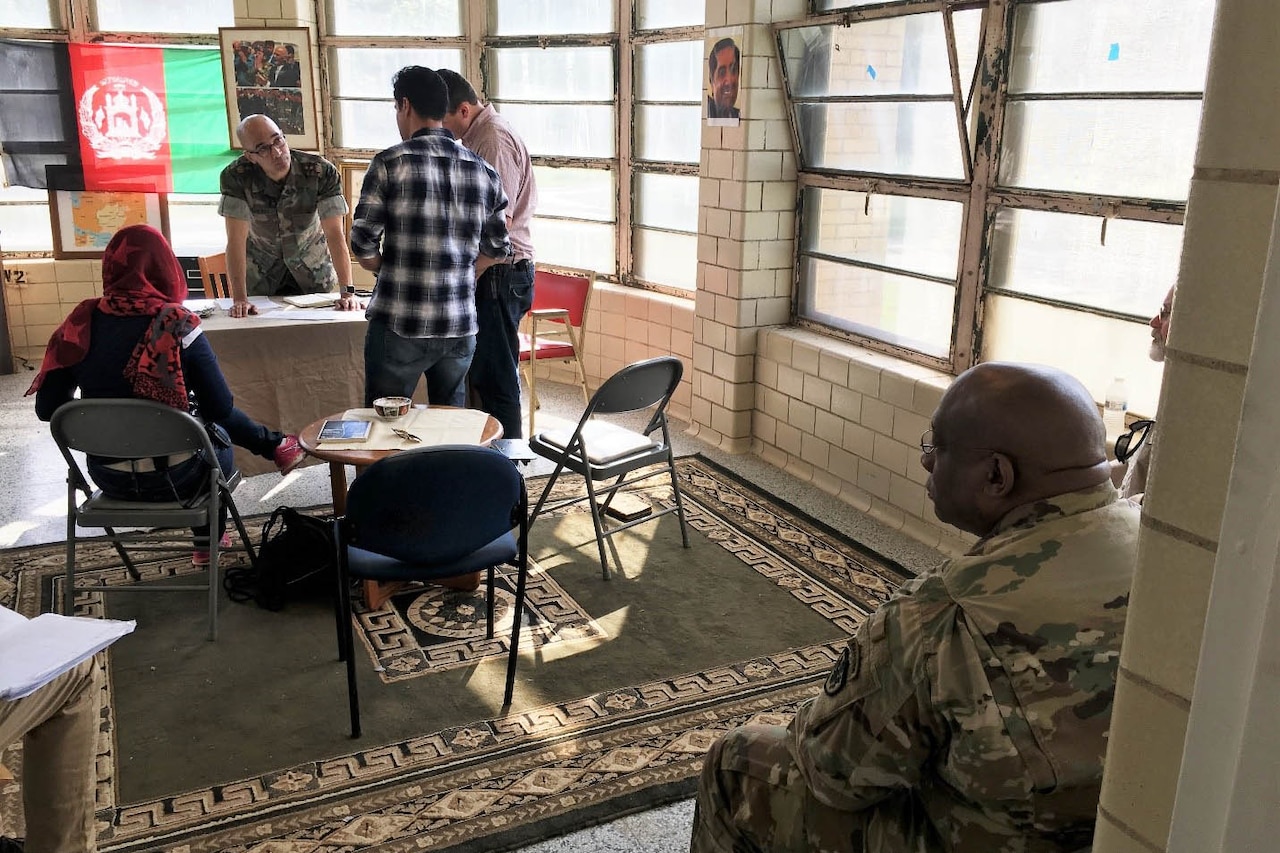
The working definition of a ministry of defense advisor is a proven subject matter expert who can be an executive coach and mentor to a foreign partner. The advisor is not a liaison, consultant or tutor, officials explained, but rather is a relationship builder who demonstrates empathy, humility and respect while forming trust-based partnerships through daily interaction and personal engagement.
It's someone who can leverage those relationships to get to the root of the problem or capability gap and facilitate the partner's problem-solving effort, an official said. Last and most important, the official said, a minister of defense advisor is someone who enables enduring, local solutions that build partner capacity.
Finding local solutions to local problems is the primary objective of any ministry of defense advisor serving in a partner nation. Security cooperation professionals are trained to develop and implement a total capability for the partner, using all of the tools in the security cooperation toolbox. MODA program candidates and the advisors they become have complementary and unique roles in the security cooperation enterprise as the professionals who are able to influence and shape outcomes supporting the partner and American national security goals through their daily proximity to the partner and expertise.
Minister of defense advisors are increasingly important as the global U.S.footprint expands into territories that are important to the National Defense Strategy, national security interests and the security cooperation mission, officials said. Stepping up to the challenge to serve as a minister of defense advisor requires careful consideration of the following, they added:
- Candidates should be GS-13/14/15 permanent DOD civilian employees;
- Candidates will engage in high-visibility, ministerial-level advising; and
- Candidates will undergo six to seven weeks of training, which will include the Strategic Advisor Course.
Interested candidates should submit the following as part of their application package to mailbox dsca.ncr.bpc.list.moda@mail.mil:
- A cover letter summarizing why the candidate would be a good fit;
- A narrative chronological resume;
- A current SF-50 with social security number and birthdate redacted;
- References from the candidate's current supervisor and at least one supervisor from any previous deployments; and
- Component approval.
Minister of defense advisor opportunities can be found here.
In Formation
Ships assigned to the Nimitz Carrier Strike Group sail in formation with Indian navy ships during a cooperative deployment in the Indian Ocean, July 20, 2020.
Airborne Ops
Soldiers watch fellow soldiers parachute during an airborne operations jump from UH-60 Black Hawk helicopters at Fort Bragg, N.C., July 17, 2020.
Live Fire
Navy Petty Officer Presley White fires a machine gun system from a remote operator console aboard the USS Germantown during a live-fire exercise in the East China Sea, July 17, 2020.
Mascot Strut
Lance Cpl. Chesty XV, the Marine Corps mascot, participates in an evening parade at Marine Barracks Washington in Washington, D.C., July 17, 2020.
Command Senior Enlisted Leader Assignment
The Office of the Senior Enlisted Advisor to the Chairman of the Joint Chiefs of Staff (OSEAC) announced today the following assignment:
Navy Command Master Chief Alexandre Hebert, currently assigned as the command master chief of the Center for Security Forces, Virginia Beach, Virginia, has been selected to assume responsibility from Army Command Sgt. Maj. Shawn F. Carns as the command senior enlisted leader for the Joint Task Force Horn of Africa, Camp Lemonnier, Djibouti.
Maintenance Squadron Maintains Ops With Minimal Manning
When the COVID-19 pandemic swept across the nation, the 19th Aircraft Maintenance Squadron at Little Rock Air Force Base, Arkansas, was already operating at reduced manning levels, with almost a quarter of the unit deployed. Social distancing and mitigation efforts to preserve the health of the remaining force cut that number in half.
Tasked with maintaining and servicing one of the largest C-130J fleets in the world, the squadron established a plan to safeguard airmen while simultaneously completing critical training and maintaining normal operations with heavily reduced manning.
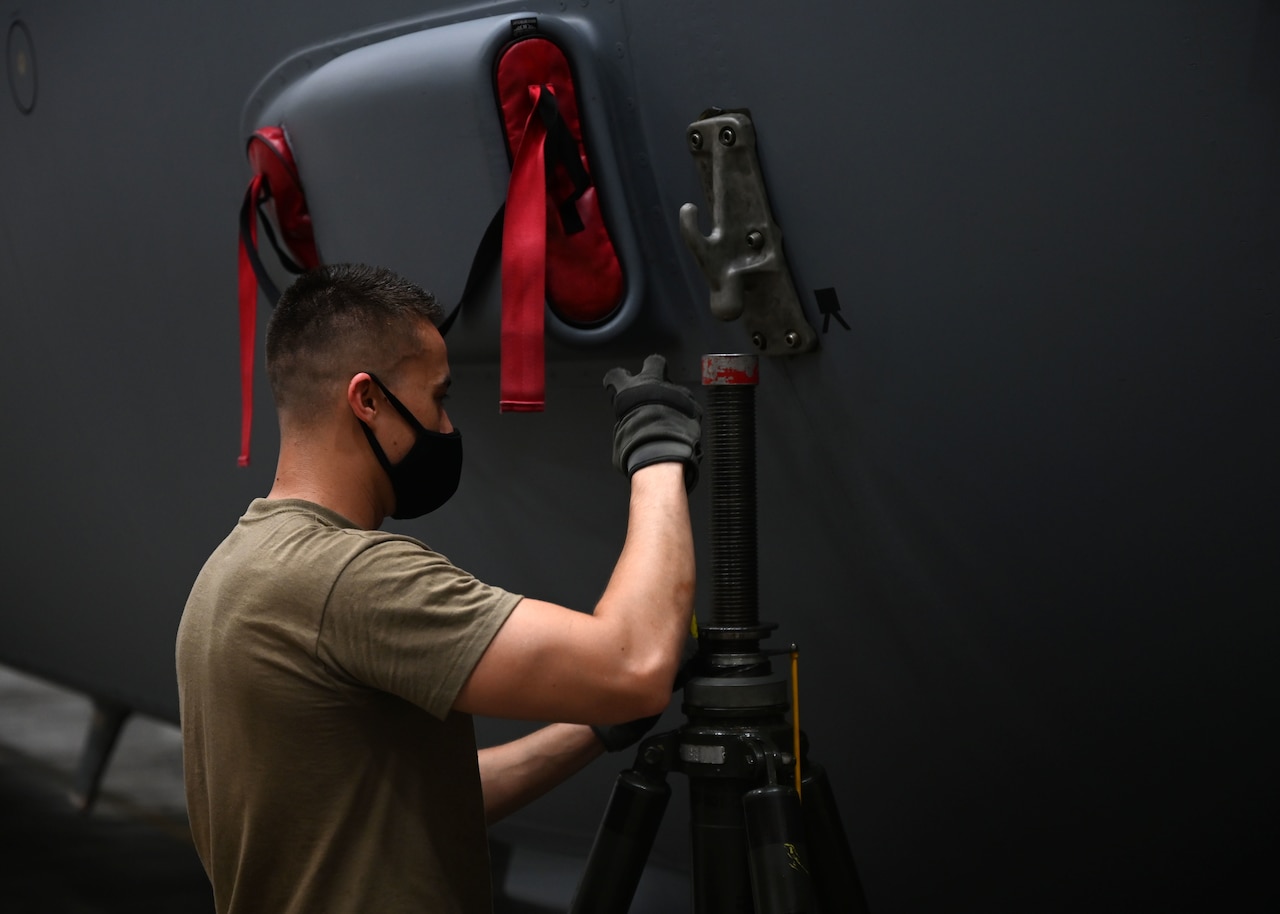
“After airmen from our unit joined the 61st Airlift Squadron on a recent deployment, we were left with little over half of our team,” said Air Force Tech. Sgt. Sam Bishop, 19th AMXS flightline expediter. “The airmen who stayed at home station were then split again due to COVID-19. Some are helping out by flying and performing scheduled maintenance while other groups are training.”
Devised by all levels of leadership within the squadron, the plan actively sought input and feedback from frontline airmen to ensure the new schedule ran smoothly and effectively.
“The plan put into place for our operations during COVID-19 was a collective collaboration between our leadership, senior [noncommissioned officers] and the lead technicians,” Bishop said. “Our leadership charged the lead technicians to figure out whether or not we can support this plan and gave ideas on the best way to move forward.”
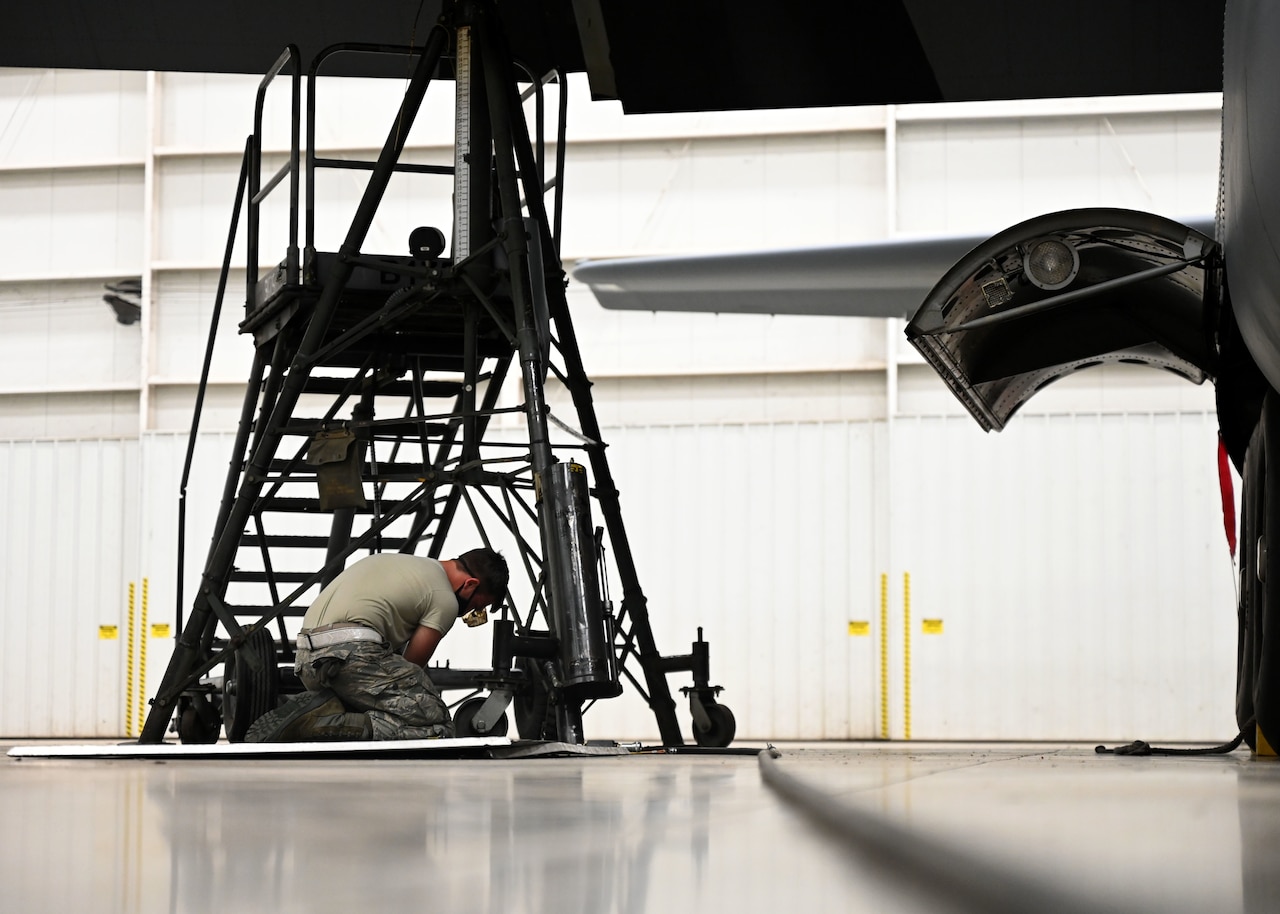
Even amid a global pandemic, junior airmen still needed essential on-the-job training to better accomplish their assigned tasks in a safe and effective manner.
''One of our challenges was training our new airmen while maintaining operations with the manning we had,'' Bishop said. ''We have a lot of new personnel who are not yet qualified to work independently. The few people we do have, who are qualified, are having to train the airmen to get them up to par to help support the mission.''
Air Force Master Sgt. Michael Pearson, a production superintendent with the 19th AMXS, acknowledged that leadership within the squadron understood right away the importance of caring for their airmen more than ever due to possible isolation people may feel from COVID-related restrictions.
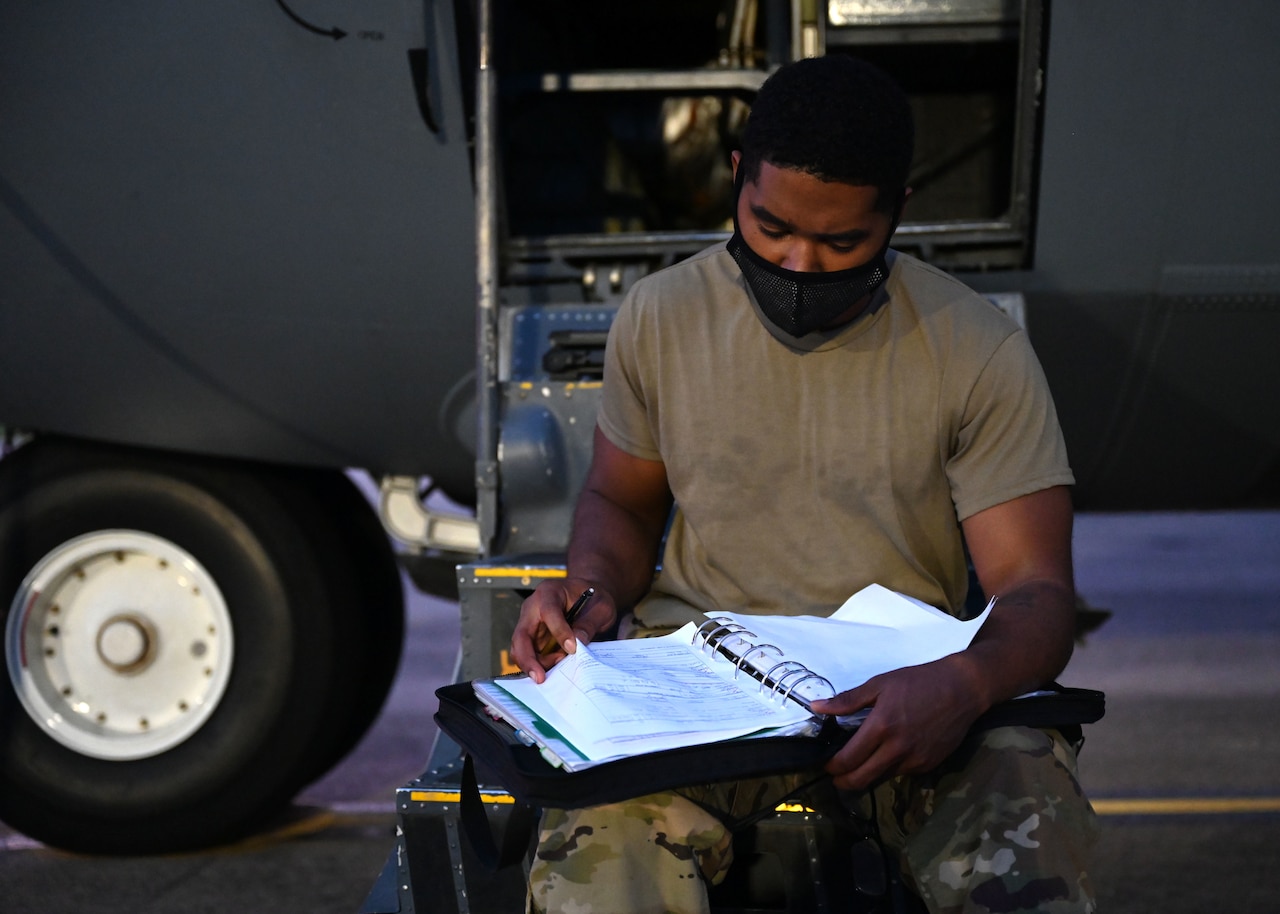
''It took some adapting at all levels,'' he said. ''We've been doing our best to try to accommodate and help everyone through the changes. That way we know their mind is in the game, and we are completing the mission safely.''
''General Giulio Douhet once famously stated, 'Flexibility is the key to air power,''' said Air Force Lt. Col. Donald Hudson, 19th AMXS commander. ''That's just what aircraft maintainers do, and that's when they're at their very best. They make it happen; and they absolutely make you proud when they not only figure out how to get past that challenge, but also improve upon how we actually execute that mission when faced with a challenge.''
(Air Force Airman 1st Class Jayden Ford is assigned to the 19th Airlift Wing.)
Combat Aviation Brigade Prepares to Deploy During COVID-19 Pandemic
Despite challenges presented by COVID-19, soldiers with the Pennsylvania Army National Guard's 28th Expeditionary Combat Aviation Brigade mobilized from their home stations to Fort Hood, Texas, to prepare for their deployment to the Middle East.
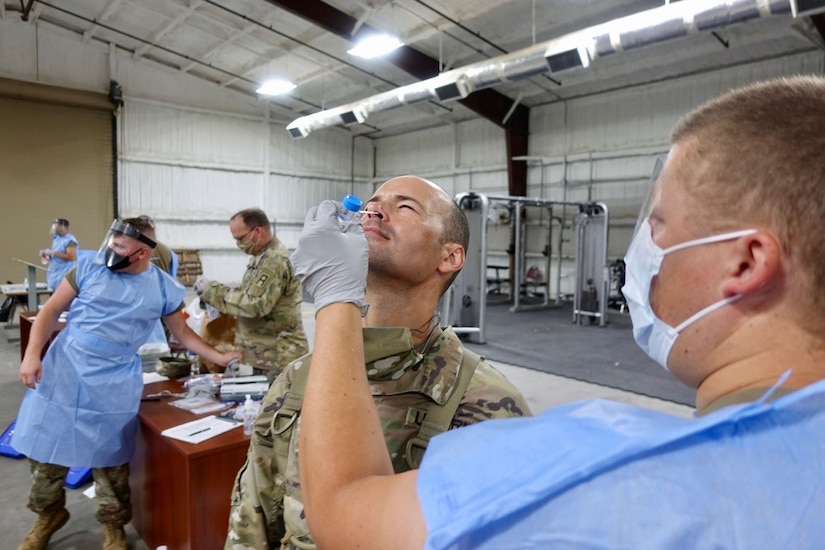
The 28th ECAB is preparing for deployment and is taking precautions to ensure soldiers receive the training, experience and confidence to accomplish their missions and stay safe. They will soon deploy to the Middle East, where they will assist U.S. Central Command with increasing regional security and stability in support of U.S. interests.
Though he acknowledged that there were some delays due to weather and lost baggage, Army Col. Howard Lloyd, commander of the 28th ECAB, described the movement of the brigade to Fort Hood as "spot on."
"Almost 1,400 soldiers embarked for this place without any hiccups," Lloyd said. "They are here, all safe. They are all bedded down. Our unit movement officers and logisticians did a great job to support the force."
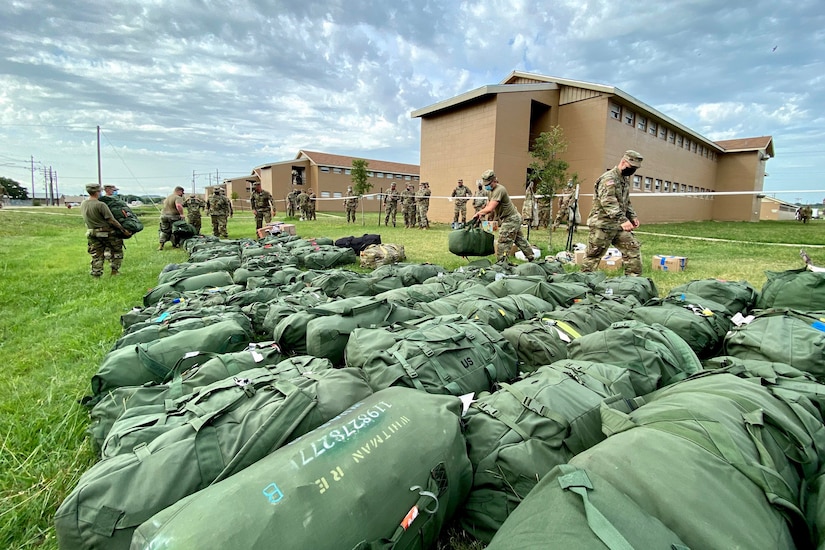
The command team understands the concerns about COVID-19 and its potential to spread within the formation. It is very important that soldiers remain healthy, and the brigade has taken numerous steps to ensure the virus doesn’t spread.
"Some of the precautions we are taking to prevent transmission of COVID-19 are wearing masks whenever we are within 6 feet of each other," said Army Maj. Todd Lupold, surgeon with the 28th ECAB. "We are socially distancing as much as possible. We are also keeping up with frequent hand washing and sanitization of our areas. Our soldiers have been counseled frequently about the precautions for COVID-19 and the importance of wearing masks, and we keep up on each other and keep an eye out for each other."
The soldiers also underwent COVID-19 testing in the first couple days after arriving at Fort Hood. A small number of positive cases were discovered, but although the soldiers were asymptomatic, they were taken into isolation to receive the best care and stop any potential spread of the virus.
Soldiers are engaged in a mandatory 4-day quarantine. They are unable to shop at the post exchange, go to the normal dining facilities or use the post gym.
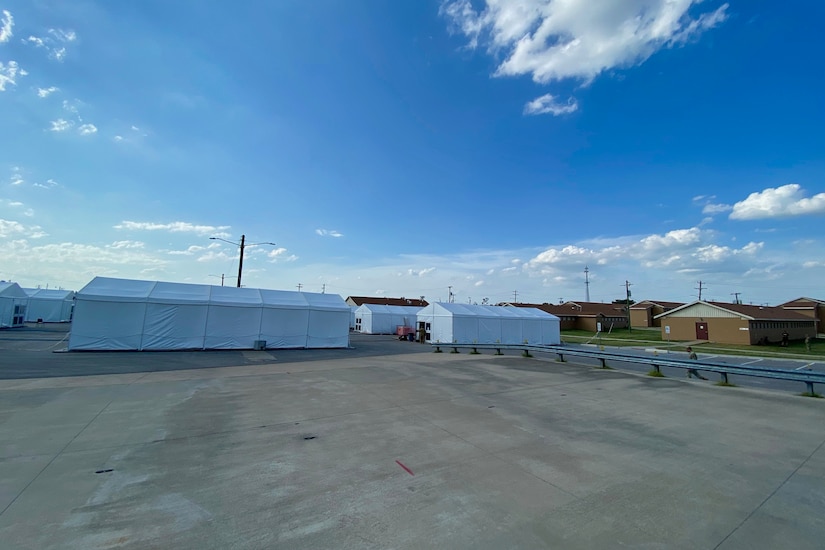
Two to three barracks are grouped into cohorts. Each cohort is assigned a dining tent, a morale tent and an exercise tent with select gym equipment. Separating cohorts this way limits the spread of any viruses in common areas, officials explained.
At the end of the mandatory 14-day period, assuming there are no outbreaks of the virus, things will open up for the 28th ECAB soldiers However, they will still be advised to take personal measures to prevent the spread of illness and stay healthy.
Following these precautions will keep the threat of COVID-19 in the formation low, and will allow the 28th ECAB to aggressively train without fear of spreading the virus deploying personnel training for the deployment. Meanwhile, they're doing what they need to do to be ready for their deployment.
"The soldiers are owning it," Lloyd said. "They are doing a fantastic job to get the job done. We're already out there at the airfield doing maintenance on aircraft. We're doing maintenance on vehicles. We're setting up our mission command right now. Everything is on-track, even with the restrictions."
(Army Capt. Travis Mueller is assigned to the 28th Expeditionary Combat Aviation Brigade.)
